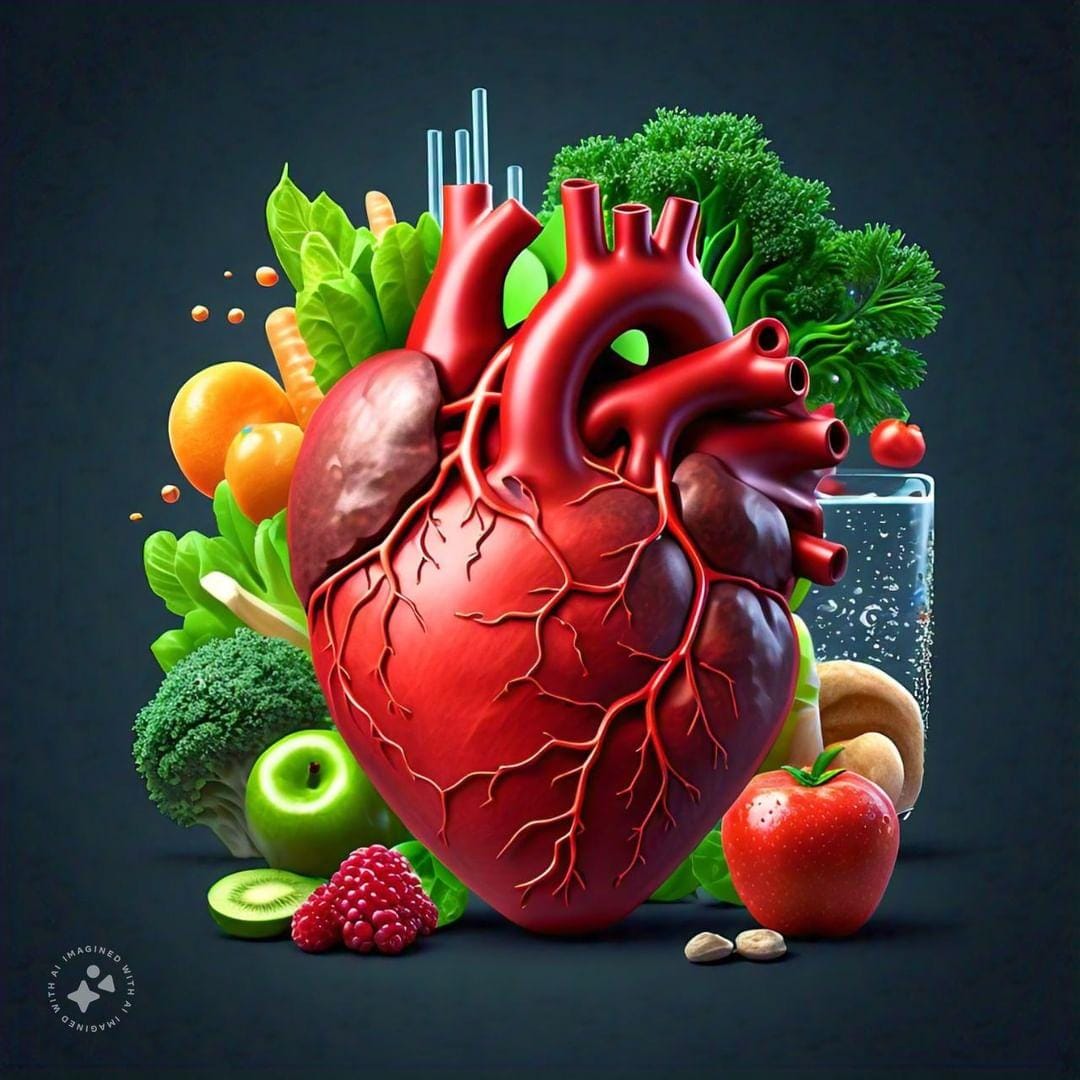Your heart is at the core of your health, pumping life into every cell of your body. Yet, heart disease remains one of the leading health challenges worldwide. Fortunately, many heart conditions are preventable by adopting healthier habits. Here are ten essential tips for keeping your heart strong, enhancing your overall health, and reducing the risk of heart disease.
Health Advisory
This informational blog is designed to offer general advice on maintaining a healthy heart. Please remember that these tips are for educational purposes and are not a substitute for professional medical advice. Always consult with a healthcare provider for personalized guidance, especially if you have specific health concerns.
1. Follow a Heart-Healthy Diet
Eating a balanced diet is the foundation of heart health. Prioritize foods that support cardiovascular health, like fruits, vegetables, whole grains, lean proteins, and healthy fats.
– Include fiber-rich foods like oats, beans, apples, and leafy greens. Fiber helps lower bad cholesterol (LDL), reducing the risk of heart disease.
– Limit unhealthy fats like trans fats and saturated fats, which can increase cholesterol levels.
– Opt for heart-friendly fats such as those found in olive oil, avocados, and fatty fish (salmon, mackerel).
2. Exercise Regularly
Staying physically active is one of the best ways to strengthen your heart. The heart is a muscle, and like any muscle, it benefits from regular exercise.
– Aim for at least 150 minutes of moderate aerobic activity (such as brisk walking) or 75 minutes of vigorous activity (like running) each week.
– Add strength training twice a week to support your cardiovascular system and overall fitness.
– Simple activities like walking, cycling, or even dancing can make a significant impact on your heart’s strength and endurance.
3. Maintain a Healthy Weight
Excess weight can put a strain on your heart and increase the risk of high blood pressure, high cholesterol, and diabetes, all of which are risk factors for heart disease.
– Monitor your body mass index (BMI) to stay within a healthy range.
– Choose nutrient-dense foods that fill you up without unnecessary calories.
– Stay hydrated and eat smaller, balanced meals to avoid overeating and maintain your energy levels throughout the day.
4. Quit Smoking and Avoid Second hand Smoke
Smoking is one of the leading causes of cardiovascular diseases. It damages the lining of your arteries, increases blood pressure, and reduces oxygen flow to the heart.
– Seek support from a healthcare provider, support groups, or smoking cessation programs to quit.
– Avoid second hand smoke exposure, which can also harm your heart over time.
– Reducing tobacco exposure will improve circulation and lower the risk of blood clots and heart attacks.
5. Keep Your Blood Pressure in Check
High blood pressure is known as the “silent killer” because it often shows no symptoms but significantly increases the risk of heart disease and stroke.
– Monitor your blood pressure regularly, even if you feel healthy.
– Reduce sodium intake by limiting processed foods and reading labels carefully.
– Manage stress and engage in relaxation activities to keep your blood pressure at a healthy level.
6. Manage Stress Effectively

(This Image is Made by Meta AI)
Chronic stress can contribute to high blood pressure and other risk factors for heart disease. Managing stress in a healthy way is essential for heart health.
– Practice mindfulness and meditation, which can calm the mind and reduce stress.
– Try breathing exercises, such as deep breathing, to relax your body and lower your heart rate.
– Engage in hobbies or activities you enjoy, and consider yoga or tai chi for added relaxation and heart benefits.
7. Get Quality Sleep
Your heart needs rest just as much as your mind and body do. Poor sleep quality or insufficient sleep can increase your risk of heart disease, obesity, and high blood pressure.
– Aim for 7–8 hours of quality sleep each night to allow your body to repair and recharge.
– Maintain a consistent sleep schedule by going to bed and waking up at the same time each day.
– Avoid caffeine and electronic devices before bed to improve sleep quality.
8. Limit Alcohol Consumption
While moderate alcohol consumption may have some heart health benefits, excessive drinking can harm your heart and increase your blood pressure.
– Limit intake to one drink per day for women and up to two drinks per day for men.
– Choose heart-healthy options, such as red wine, which contains antioxidants that may benefit your heart (in moderation).
– Drink water between alcoholic beverages to stay hydrated and reduce overall alcohol consumption.
9. Control Your Cholesterol Levels
High cholesterol levels can lead to plaque buildup in the arteries, increasing the risk of heart disease.
– Eat cholesterol-lowering foods like oats, beans, nuts, and fatty fish.
– Avoid foods high in saturated fats and trans fats, such as fried foods, fast food, and processed snacks.
– Consider regular cholesterol checks to monitor your levels and seek guidance from a healthcare provider if needed.
10. Stay Social and Maintain Strong Relationships
A strong support system can have a positive impact on your heart health. Studies show that people who maintain close friendships and have good social support tend to have healthier hearts.
– Stay connected with family, friends, or community groups.
– Engage in group activities that promote physical health, like walking clubs or fitness classes.
– Talk openly with loved ones if you’re feeling stressed or need support, which can reduce the negative impact of stress on your heart.
At Hi-Tech Hospital, Your Heart Health Comes First
At Hi-Tech Hospital, we understand the importance of a strong, healthy heart. Our team of experienced cardiologists and healthcare professionals is dedicated to providing personalized care and advanced treatments to support your cardiovascular health. From preventive screenings and lifestyle guidance to cutting-edge procedures, we are committed to offering comprehensive heart care to our patients. Whether you’re managing a heart condition or seeking ways to improve your heart health, Hi-Tech Hospital is here to help you lead a healthier, more active life.
Health Advisory
This informational blog is designed to offer general advice on maintaining a healthy heart. Please remember that these tips are for educational purposes and are not a substitute for professional medical advice. Always consult with a healthcare provider for personalized guidance, especially if you have specific health concerns.
Conclusion: Make Heart Health a Priority
Adopting these heart-healthy habits can make a big difference in your overall health and quality of life. Remember, even small changes can have a significant impact over time. Start with one or two tips, then gradually add more into your daily routine. Your heart will thank you!
If you have any existing health conditions or a family history of heart disease, speak with a healthcare professional about a personalized plan to protect your heart. Take control of your health today and embrace a lifestyle that supports a strong, healthy heart for years to come.

